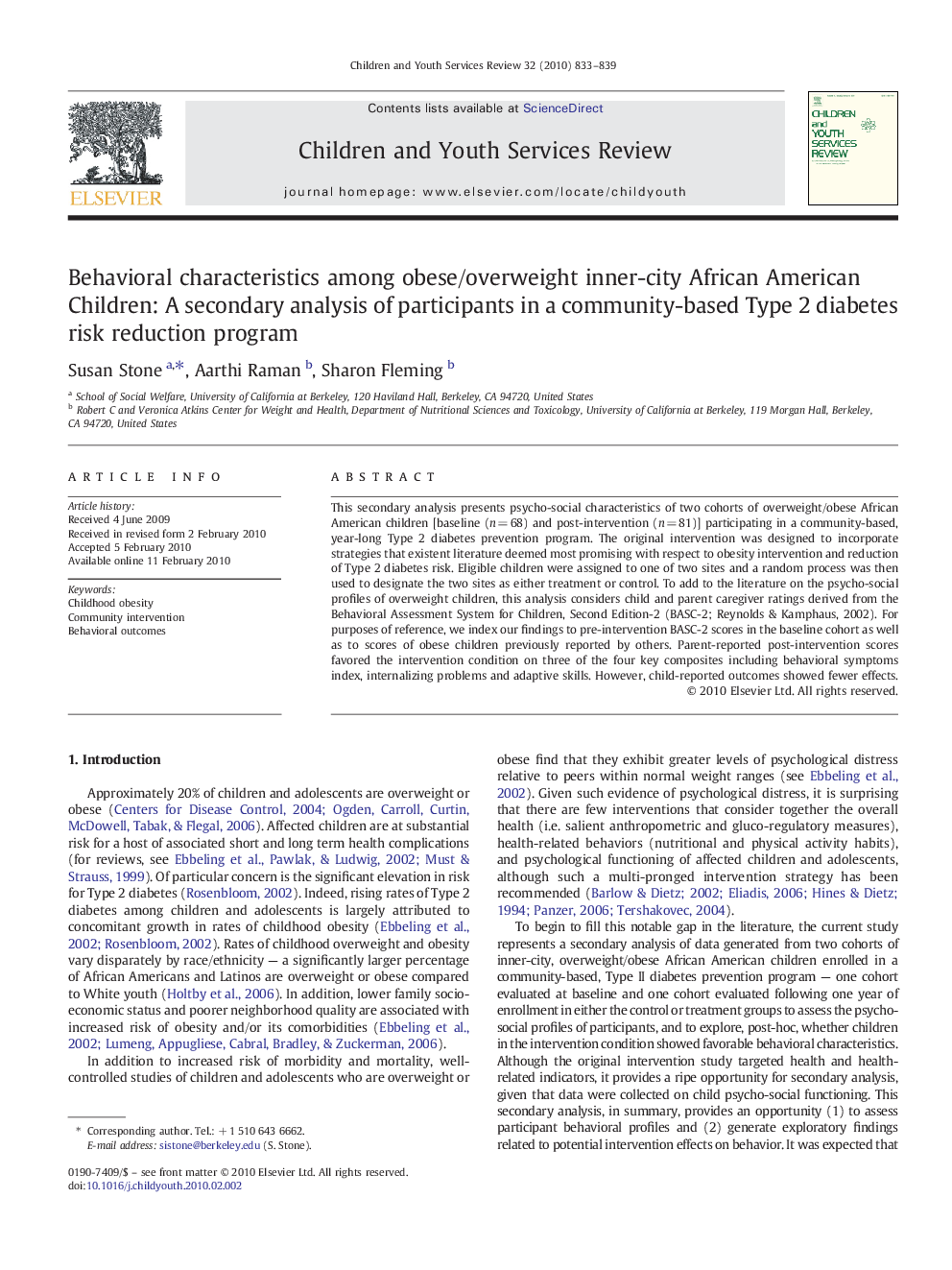| Article ID | Journal | Published Year | Pages | File Type |
|---|---|---|---|---|
| 346481 | Children and Youth Services Review | 2010 | 7 Pages |
This secondary analysis presents psycho-social characteristics of two cohorts of overweight/obese African American children [baseline (n = 68) and post-intervention (n = 81)] participating in a community-based, year-long Type 2 diabetes prevention program. The original intervention was designed to incorporate strategies that existent literature deemed most promising with respect to obesity intervention and reduction of Type 2 diabetes risk. Eligible children were assigned to one of two sites and a random process was then used to designate the two sites as either treatment or control. To add to the literature on the psycho-social profiles of overweight children, this analysis considers child and parent caregiver ratings derived from the Behavioral Assessment System for Children, Second Edition-2 (BASC-2; Reynolds & Kamphaus, 2002). For purposes of reference, we index our findings to pre-intervention BASC-2 scores in the baseline cohort as well as to scores of obese children previously reported by others. Parent-reported post-intervention scores favored the intervention condition on three of the four key composites including behavioral symptoms index, internalizing problems and adaptive skills. However, child-reported outcomes showed fewer effects.
